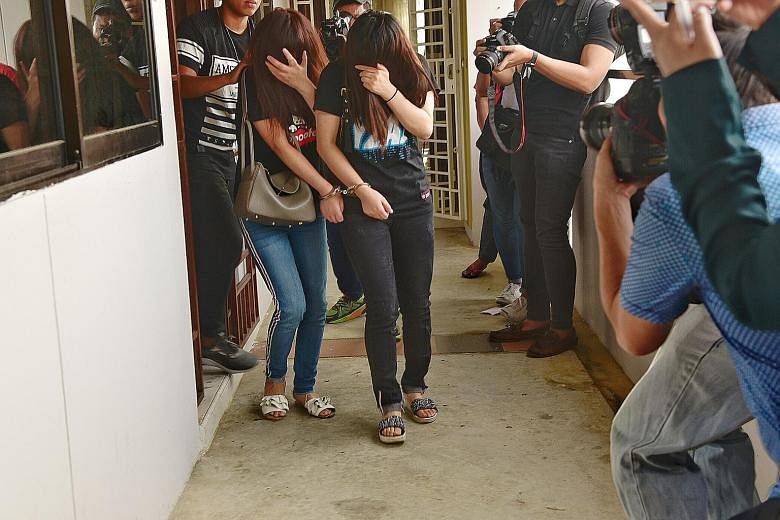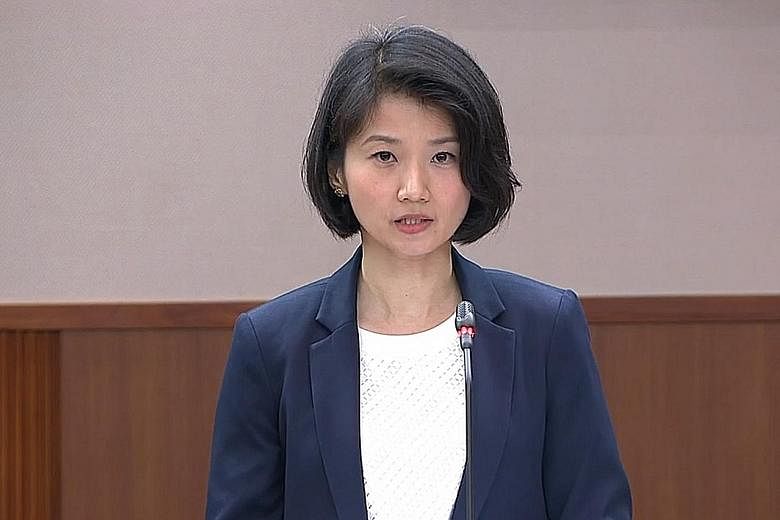The authorities will have more powers to act against owners of residential premises used as "pop-up" brothels that move from one unit to another, and against vice syndicates operating online, under changes to the Women's Charter passed by Parliament yesterday.
The changes will also target those who try to evade the law by moving their vice operations overseas. Both new and repeat offenders will be slapped with higher fines and longer jail terms, said Senior Parliamentary Secretary for Home Affairs Sun Xueling.
In 2015, 16 per cent of women arrested for vice were involved with online syndicates. Last year, this increased to 55 per cent.
Between 2015 and last year, seven in 10 foreign women arrested for advertising their services online were providing sexual services in residential estates, she added.
An owner or tenant who rents out or sub-lets premises which are used as a brothel will be criminally liable, unless they can show they had no knowledge and could not have, with reasonable diligence, ascertained that the place was to be used for such a purpose.
"Reasonable diligence" means owners and tenants should conduct identity checks of prospective tenants or sub-tenants through face-to-face interviews.
If they are overseas, owners should engage an agent to conduct such interviews on their behalf.
The changes are necessary because syndicates often exploit the lack of checks at the point of leasing, Ms Sun said, citing the use of false identities, including those of dead persons, to rent properties.
The new law will extend such checks to tenants and sub-tenants who are Singapore citizens and permanent residents.
Property agents who do not conduct identity checks on the relevant parties may also be fined, or have their registration suspended or revoked by the Council for Estate Agencies (CEA).
The authorities will work with the CEA to introduce professional guidelines.
Other changes to the Charter include making people based outside Singapore liable if they facilitate the provision of sexual services here through remote communication services, such as websites or instant messaging apps.
The police will also be given powers to arrest a pimp or agent, even if a freelance sex worker cannot be said to have been "procured" by anyone. Currently, only agents of women who have been procured are liable for the offence.
Maximum penalties for the offences will be raised too. Those who live off earnings from prostitutes could face a mandatory jail term of up to seven years and a $100,000 fine, up from the current five-year jail term and fine of up to $10,000.
Said Ms Sun: "It is necessary to strengthen our levers against vice syndicates and individuals, especially those operating through online means."



